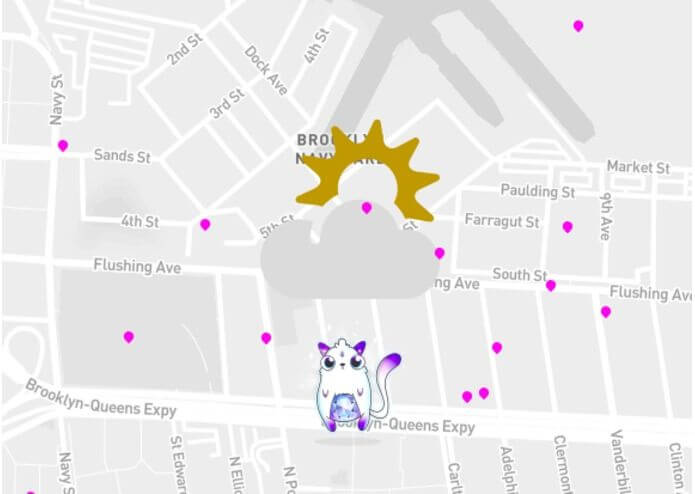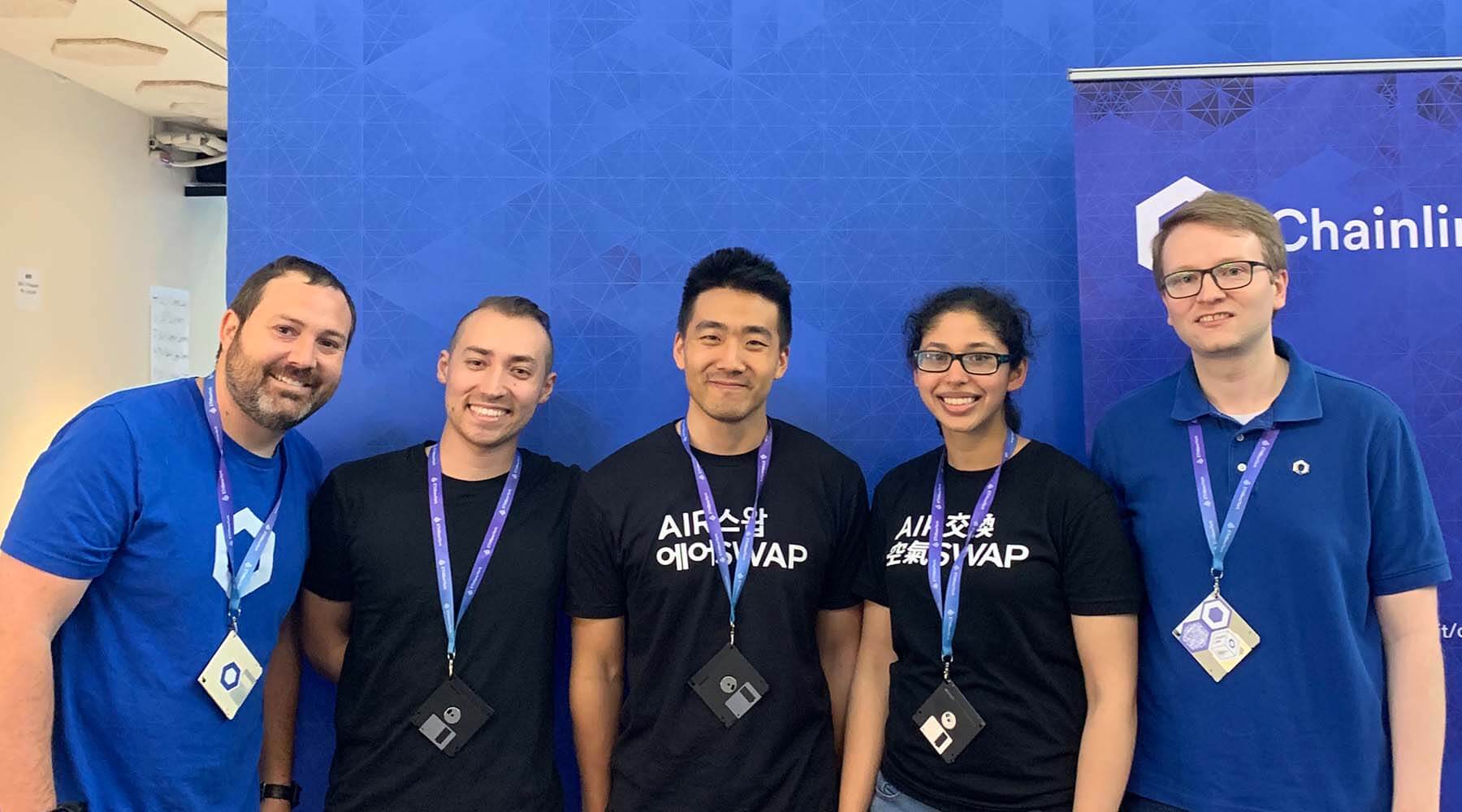The Winning Projects From ETHNewYork Hackathon
At the May ETHNewYork Hackathon last week, we supported numerous teams who integrated Chainlink oracles into their smart contracts. We awarded $5,000 in prizes to the two top teams with the best working applications of Chainlink on the Ethereum blockchain.
First Place: French Toast Kitty
French Toast Kitty, a three-person team made up of Brian Chou, Deepa Sathaye, and Ethan Wessel took the coveted first place prize of $4,000. Expanding on the already popular Dapp CryptoKitties — an ETH based blockchain game that allows users to buy, sell and breed rare digital cats — French Toast Kitty is a Dapp that enables Cryptokitty owners to interact with their Cryptokitty using real-world data. It extends the functionality of CryptoKitties by rendering the cats on a digital map and showing relevant activities to enjoy with the kitty depending on the weather. For example, it will recommend a nearby park on a sunny day and a fun museum on a rainy day.

French Toast Kitty uses Chainlink oracles to gather weather data from the MetaWeather.com API based on a user’s search location criteria. The weather data determines the recommended activities. The team notes that “Bringing real-world data to the blockchain can be hard, but Chainlink made it easy to fetch real-world data trustlessly and securely.”
While rare collectibles have always been a thing, French Toast Kitty is one the few projects using data to fuel user interaction with digital collectibles. The team believes that “we’ll continue to see variations of collectibles moving forward.” In fact, they are already working on additional features for their Dapp, such as “cat animations and giving the kitties a mind of their own.”

Judges Choice Award: Blocksolid
Blocksolid, a four-person team consisting of Saga Arvidsdotter, Juan Mayen, Sam Steele, and Katia Shatkin, earned the Judges Choice Award of $1,000. The Blocksolid Dapp allows anyone in the world to donate ETH (and soon fiat via WYRE) to a smart contract that pays for Internet services in developing regions. Blocksolid built an Internet script that can scan Internet connections and identify the Internet uptimes at various locations. NGOs can monitor the metrics on the Dapp’s dashboard and use the data to hold ISPs (Internet Service Providers) accountable for their service levels, as well as determine geographies to support with additional Internet resources.

Blocksolid uses Chainlink oracles to relay the data gathered by the script to a smart contract. As Katia from BlockSolid affirms, “The smart contract allows or prevents the withdrawal of funds by Internet service providers based on collected uptime data. This incentivizes Internet providers to deliver reliable service and offers end to end transparency to NGOs for donated funds. Chainlink’s technology is at the heart of the project and allowed us to feed the data securely from ISP endpoints to the smart contract.”
Providing third world countries reliable Internet connections will help rectify economic disparities. Access to the Internet can help underdeveloped regions resolve the education gap and ensure people have reliable and accurate information.
Both hackathon winners showcase how Chainlink expands the functionality of smart contracts by allowing external data to trigger state changes in the blockchain. Access to external resources and data opens up a whole range of new use cases previously off-limits to developers.
